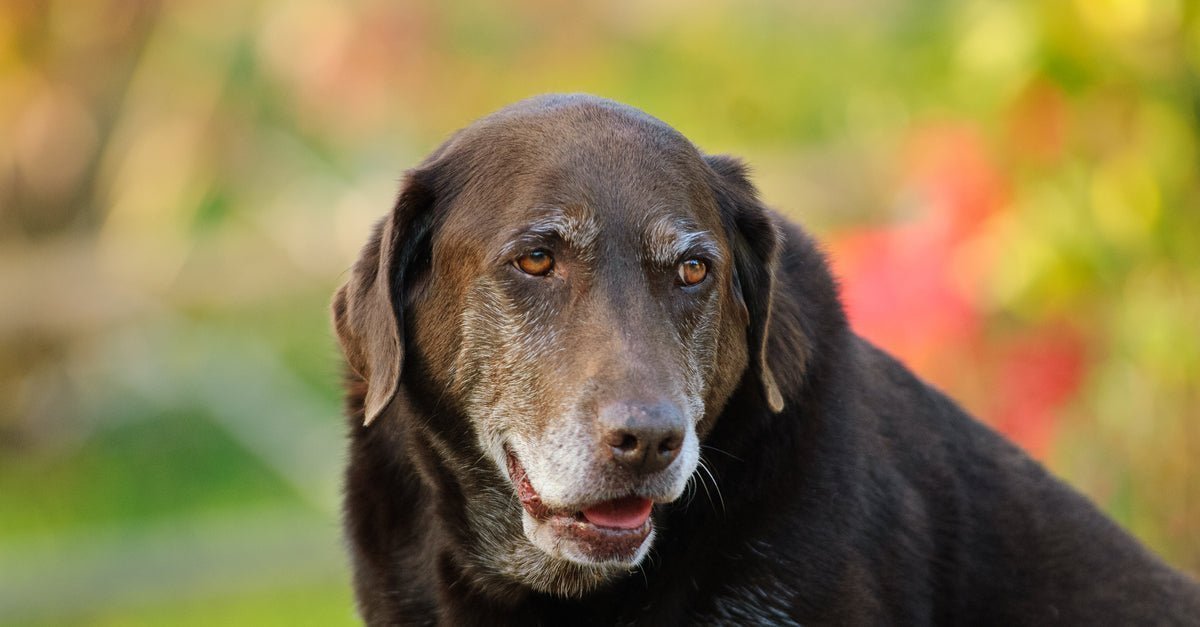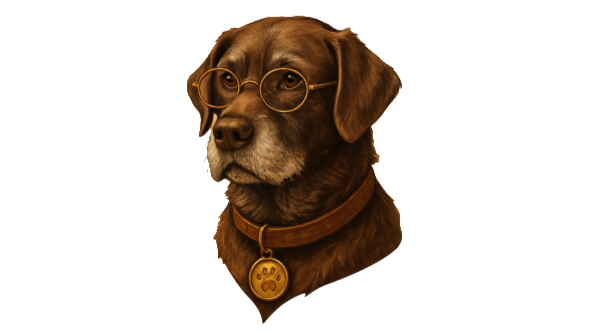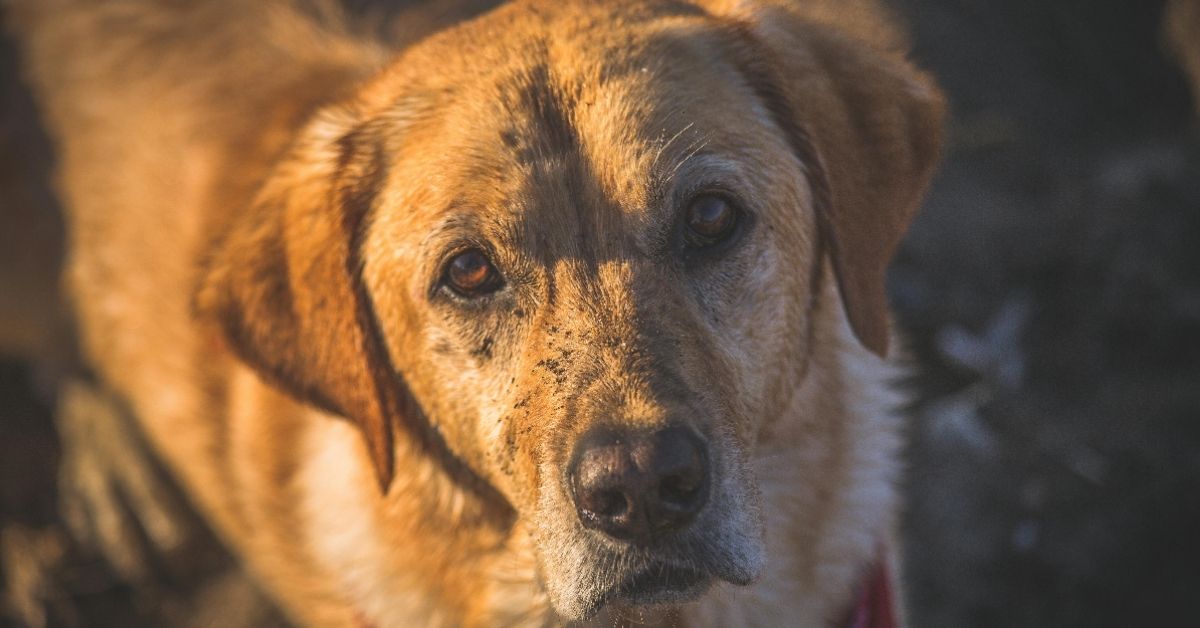Article: When to Start Planning for Senior Labrador Retriever's Health

When to Start Planning for Senior Labrador Retriever's Health
Labrador Retrievers are full of life—loyal, playful, and always ready for a walk or a cuddle. These remarkable dogs bring boundless energy to our homes, greeting each day with enthusiasm and an infectious zest for living. But one day, subtle changes begin to appear. The zoomies slow down just a bit. Those effortless jumps onto the couch turn into more deliberate, gentle steps. Your beloved Lab starts aging, and it can feel like it happens overnight, catching you completely off guard.
The truth? Aging starts much earlier than most pet parents realize, often beginning with microscopic changes in joints, organs, and cellular function that aren't immediately visible. And if you love your Lab like family—which most of us absolutely do—the best thing you can do is start planning before the gray hairs show around their muzzle.
Proactive senior health planning isn't about expecting problems; it's about preventing them or catching them early when they're most manageable. This comprehensive approach to aging can mean the difference between a senior dog who struggles with pain and mobility issues and one who continues to enjoy life with vigor and comfort well into their golden years.
🐾 When is a Labrador Retriever Considered a Senior?
Veterinarians typically consider Labradors "senior" dogs around age 7, marking the beginning of their golden years. However, the aging process is gradual and individual, with subtle signs often appearing much earlier than this official designation. These early indicators—like slight stiffness after an intense play session, a little more hesitation before jumping up the stairs, or taking a bit longer to get up from a nap—can begin as early as 5 or 6 years of age.
Understanding the Labrador Retriever Aging Timeline
Ages 5-6: Early Pre-Senior Phase This is when cellular aging begins, though most changes aren't visible yet. Joint cartilage starts showing microscopic wear, metabolism may begin to slow slightly, and recovery time after exercise increases marginally. Most Labs still appear completely normal to their owners during this phase.
Ages 7-8: Official Senior Status More noticeable changes emerge during this period. Gray hairs become visible around the muzzle and eyes, energy levels may decrease slightly, and some Labs begin showing preferences for softer sleeping surfaces or warmer spots in the house.
Ages 9-10: Advanced Senior Years Mobility changes become more apparent, hearing or vision might decline slightly, and cognitive changes may begin to emerge. This is when most owners recognize their dog as truly "senior."
Ages 11+: Geriatric Phase Significant age-related changes typically become evident, requiring more intensive management and care adaptations.
That critical 5-6 year age range represents the sweet spot for preventive care. Start early intervention during this period, and you can help your Lab stay active, happy, and comfortable well into their golden years, potentially adding both years to their life and life to their years.
💡 Why Early Senior Health Planning Matters
Labrador Retrievers are more than just dogs—they're cherished family members who deserve the same level of thoughtful health planning we'd provide for any beloved family member. Understanding the breed-specific health challenges that commonly affect Labs as they age allows us to implement targeted prevention strategies that can dramatically improve their quality of life.
Common Age-Related Health Issues in Labrador Retrievers
Labs are genetically predisposed to several health conditions that typically develop or worsen with age:
- Hip and elbow dysplasia - malformation of joint sockets that leads to arthritis and mobility issues
- Arthritis and joint degeneration - progressive wearing of cartilage causing pain and stiffness
- Obesity - a particular problem for food-motivated Labs that compounds other health issues
- Heart conditions - including valve disease and cardiomyopathy
- Cognitive decline - similar to dementia in humans, affecting memory and behavior
- Eye conditions - including cataracts and progressive retinal atrophy
- Cancer - unfortunately common in older Labs, particularly lymphoma and bone cancer
The Compound Effect of Prevention
Early intervention creates a compound effect where small actions taken consistently over time yield dramatic results. Just as humans benefit from preventive healthcare, dogs experience significant advantages when age-related care begins before symptoms appear.
Planning early can help you: ✅ Keep your dog mobile and pain-free for longer periods ✅ Delay the onset of joint problems and arthritis ✅ Maintain cognitive function and brain health ✅ Improve their overall quality of life and potentially extend lifespan ✅ Reduce long-term veterinary costs through prevention rather than treatment ✅ Build a strong relationship with your veterinary team before crisis situations arise
🦴 What Early Senior Labrador Retriever Care Looks Like
Implementing a comprehensive senior care plan doesn't require dramatic lifestyle changes, but rather thoughtful adjustments and additions to your current routine. The key is consistency and starting before problems develop.
1. Enhanced Veterinary Care Schedule
Twice-a-Year Checkups become essential starting around age 6. These more frequent visits help catch subtle health changes early when they're most treatable. Senior dogs can develop health issues rapidly, and problems that develop over six months might be missed with annual visits.
Around age 6, discuss with your vet about establishing baseline bloodwork panels that will serve as comparison points for future tests. Start comprehensive annual senior panels by age 7, including complete blood chemistry, thyroid function, and urinalysis. These tests can detect kidney disease, diabetes, liver problems, and other conditions before symptoms appear.
Consider specialized screening for breed-specific issues like hip X-rays to monitor joint health, eye exams to check for developing cataracts or other vision problems, and heart monitoring to detect early signs of cardiac issues.
2. Strategic Nutritional Management
Transitioning to Senior-Focused Nutrition doesn't necessarily mean waiting until your dog is officially "senior." Many nutritionists recommend beginning this transition around age 6-7, or earlier if your Lab has specific health concerns.
Look for foods rich in omega-3 fatty acids (particularly EPA and DHA) which support joint health, brain function, and reduce inflammation. Antioxidants like vitamin E, vitamin C, and beta-carotene help combat cellular damage from aging. Joint-friendly nutrients including glucosamine, chondroitin, and MSM support cartilage health.
Consider foods with reduced calories but maintained protein levels to prevent age-related muscle loss while managing weight. Easily digestible proteins become more important as digestive efficiency may decline with age.
3. Proactive Joint Health Support
Daily Joint Supplements should ideally begin by age 5 or 6, even before you see any symptoms of stiffness or discomfort. Prevention is far more effective than trying to reverse existing joint damage.
High-quality glucosamine and chondroitin supplements support cartilage health and may slow the progression of arthritis. Omega-3 fatty acids provide natural anti-inflammatory benefits. Some supplements also include MSM (methylsulfonylmethane) for additional joint support.
Discuss with your veterinarian whether prescription joint supplements or medications might be appropriate for your Lab's specific risk factors and health status.
4. Weight Management as Disease Prevention
Maintaining Optimal Weight becomes increasingly critical as Labs age, as excess pounds put additional strain on already-stressed joints, particularly hips and knees. Even a few extra pounds can significantly impact mobility and comfort.
Control portions carefully, as metabolism typically slows with age while appetite often remains strong. Use healthy, low-calorie treats and prioritize lean proteins. Regular body condition scoring helps track subtle weight changes before they become problematic.
Consider switching to a weight management formula dog food if your Lab shows signs of weight gain, and discuss portion adjustments with your veterinarian based on activity level and body condition.
5. Adapted Exercise Programs
Gentle Daily Exercise becomes more important than ever, but the focus shifts from high-intensity activities to sustained, low-impact movement. Swimming provides excellent cardiovascular exercise while being extremely gentle on joints—perfect for Labs who typically love water activities.
Long, leisurely walks allow for adequate exercise while providing mental stimulation through environmental exploration. Avoid high-impact activities like jumping off furniture, intensive fetch sessions on hard surfaces, or activities that involve sharp turns and sudden stops.
Consider adding formal physical therapy exercises if your vet recommends them, and always allow adequate warm-up and cool-down periods for any exercise.
🧠 Cognitive Health and Mental Stimulation
As Labrador Retrievers age, maintaining cognitive function becomes as important as physical health. Mental stimulation helps preserve brain function and can delay the onset of cognitive decline that affects many senior dogs.
Brain-Healthy Activities
- Puzzle feeders and treat-dispensing toys that challenge problem-solving skills
- Regular training sessions with new commands or tricks
- Scent work and nose games that engage their natural hunting instincts
- Social interactions with familiar dogs and people
- Environmental enrichment through supervised exploration of new (safe) areas
Signs of Cognitive Decline to Watch For
- Disorientation in familiar places
- Changes in sleep-wake cycles
- Increased anxiety or clinginess
- Accidents in house-trained dogs
- Decreased responsiveness to familiar commands
🏠 Environmental Modifications for Aging Labs
Preparing your home environment for an aging Labrador Retriever can prevent injuries and increase comfort as mobility changes occur.
Home Safety Adjustments
- Non-slip rugs on smooth floors to prevent falls
- Ramps or steps for easier access to furniture and vehicles
- Orthopedic bedding to support joints during rest
- Raised food and water bowls to reduce neck strain
- Adequate lighting for dogs with declining vision
- Baby gates to prevent access to stairs if needed
💛 The Emotional Side of Growing Older
Watching your beloved dog slow down can tug at your heart and bring up complex emotions about aging, mortality, and the passage of time. These feelings are completely normal and shared by virtually every pet parent who has loved a dog through their senior years.
Emotional Benefits of Planning Ahead
Planning ahead provides invaluable peace of mind during what can be an emotionally challenging time. When you've taken proactive steps to support your Lab's health, you can focus on enjoying your time together rather than worrying about what might go wrong.
Preparation also helps you feel empowered and in control, rather than reactive to health crises. This sense of agency can significantly reduce anxiety and help you make better decisions for your dog's care.
It's not about fearing old age—it's about embracing it with love, preparation, and the confidence that comes from knowing you're doing everything possible to ensure your Lab's comfort and happiness.
💰 Financial Planning for Senior Care
Senior Labrador Retriever care often involves increased veterinary expenses, medications, supplements, and potential modifications to diet and environment. Planning financially for these changes helps ensure your Lab receives optimal care without causing financial stress.
Budget Considerations
- More frequent veterinary visits and diagnostic tests
- Prescription medications and supplements
- Specialized senior dog food and treats
- Environmental modifications and assistive devices
- Potential emergency medical care
Consider pet insurance or establishing a dedicated savings account for senior care expenses while your Lab is still young and healthy.
🐶 Final Thought: Love Means Planning Ahead
If your Lab is turning 5 or 6, now is the perfect time to act. You may not see significant changes yet, but the care and planning you implement today can dramatically shape their health, comfort, and happiness tomorrow. Every proactive step you take is an investment in more quality time together.
The goal isn't to extend life at any cost, but to ensure that the years you have together are filled with joy, comfort, and the special bond that makes Labrador Retrievers such extraordinary companions. Senior dogs who receive thoughtful, preventive care often surprise their families with their continued vitality and zest for life.
Because every Labrador deserves a long, tail-wagging retirement filled with sunny naps, gentle adventures, and the secure knowledge that they are deeply loved and carefully cared for.
Starting this journey early is one of the greatest gifts you can give your Lab—and yourself. The peace of mind that comes from knowing you're prepared for the golden years ahead allows you to focus on what matters most: cherishing every precious moment with your faithful companion.
📸 Photo Credits: Featured images in this article are licensed from Shutterstock


